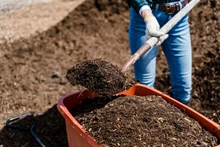
The ongoing negotiations between the UK and India for a proposed free trade agreement (FTA) face a hurdle concerning the level of protection for Geographical Indication (GI) products from the agricultural sector.
This issue involves British GI products such as Scotch whisky, Stilton cheese, and Cheddar cheese. GIs are essentially products originating from specific geographical territories, carrying an assurance of quality and distinctiveness tied to their origin.
The UK is pressing for a higher level of protection for its GIs, including provisions beyond what India typically offers for violation of GI rules. While India generally provides protection for GIs, the UK seeks an elevated standard.
Negotiations are underway between the two countries, with intellectual property rights (IPRs) being a key area of contention.
The Trade-Related Aspects of Intellectual Property Rights (TRIPS) under the World Trade Organisation sets out a heightened level of protection for GIs. This entails preventing the use of a GI if the product does not genuinely originate from the designated area, irrespective of public deception or disclosure of true origin.
The current enhanced protection primarily applies to wines and spirits and prohibits the use of certain terms for products falling under this safeguard.
Nilanshu Shekhar, a founding partner at law firm KAnalysis, notes that Indian legislation treats all products equally concerning GI protection. The decision to grant higher protection lies with the central government and varies based on international recognition. India advocates for expanded protection to prevent the misuse of labels like Basmati rice by other countries.
In the context of the proposed FTA, the UK's push for higher-level GI protection primarily benefits its export segments of wines, spirits, and dairy products. Shekhar suggests that India should negotiate for reciprocal elevated GI protection for its products, creating a more balanced trade relationship and potentially opening new markets globally.
He emphasizes the need for caution, especially regarding products like cheese, as higher GI protection could pose challenges for Indian companies. Therefore, New Delhi should only consider acceding to the UK's demand if there is equivalent reciprocity in another department.
Abhijit Das, an expert on internal trade and WTO-related issues, echoes this sentiment, stating that if the UK seeks higher GI protection, it should reciprocate accordingly for Indian GIs. Failure to do so could have adverse consequences for Indian products like Amul's cheese.
Prominent Indian goods with GI tags include Basmati rice, Darjeeling Tea, Chanderi Fabric, Mysore Silk, Kullu Shawl, Kangra Tea, Thanjavur Paintings, and Kashmir Walnut Wood Carving.
Commerce Secretary Sunil Barthwal has clarified that there is no specific deadline for concluding the FTA negotiations, emphasizing the complexity of the issues under discussion.
The talks between India and the UK began in January 2022, aiming to establish a comprehensive free trade agreement. The unresolved matter of GI protection highlights the nuanced challenges both nations face in aligning their trade interests.











